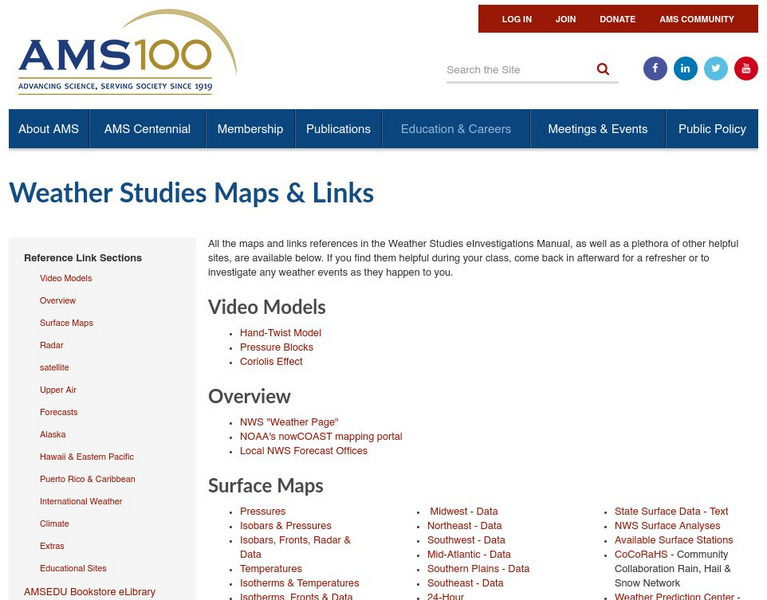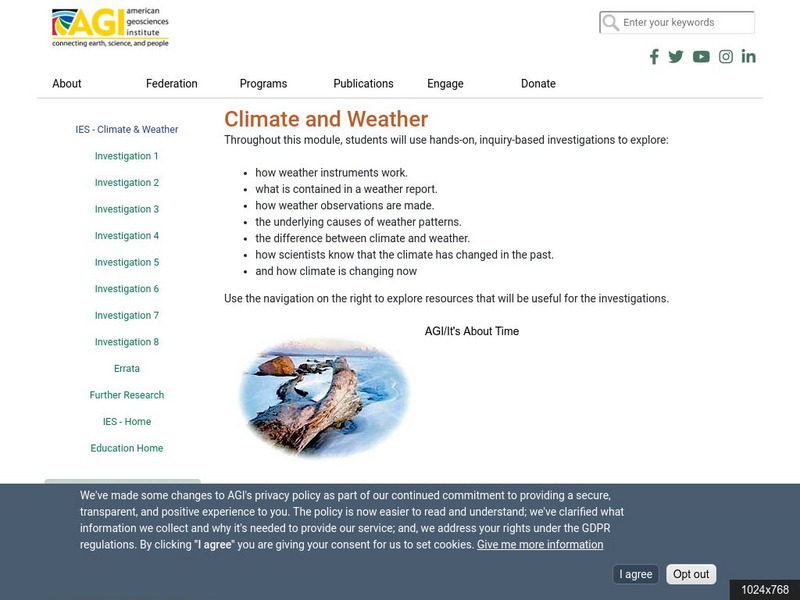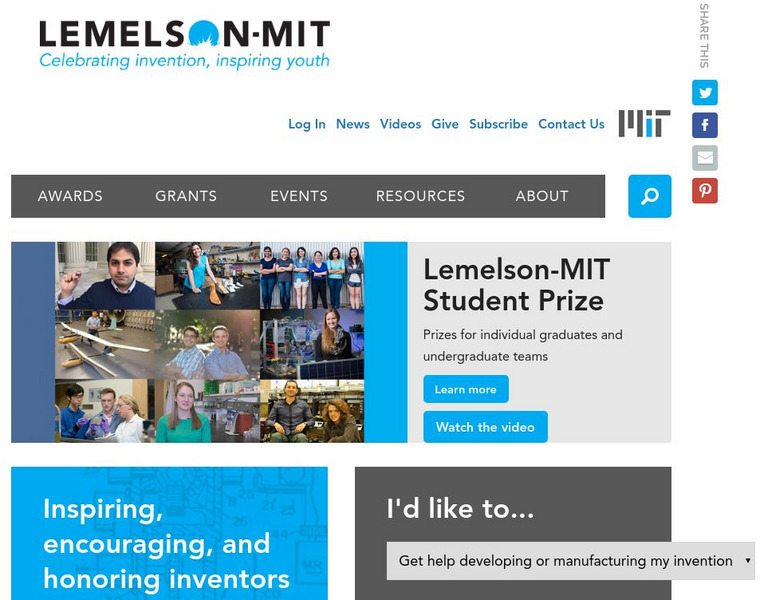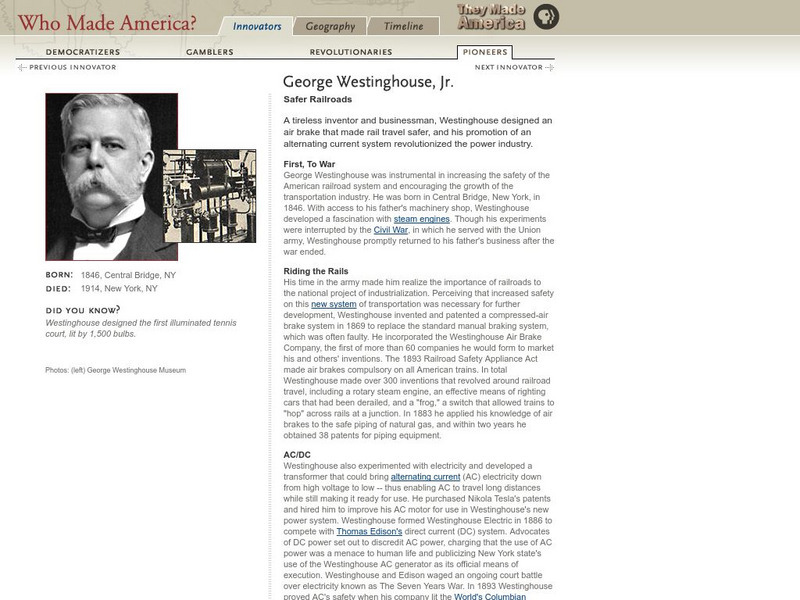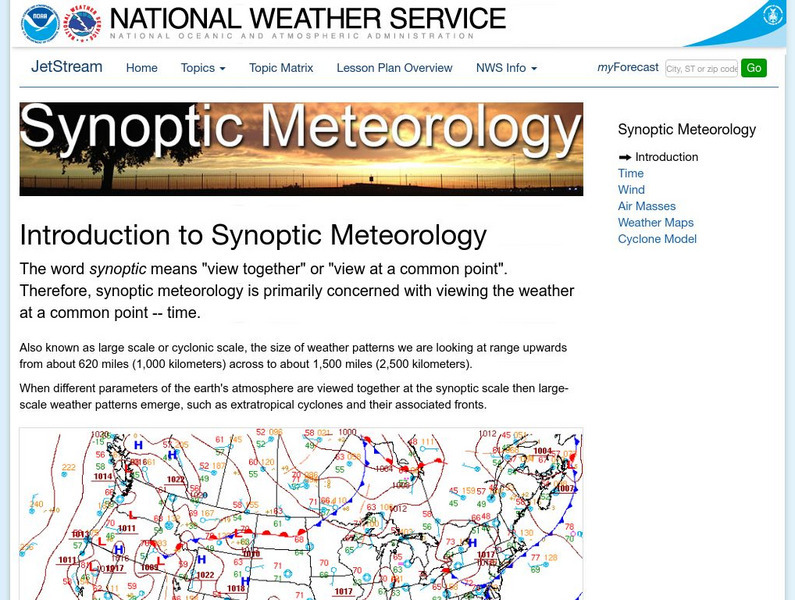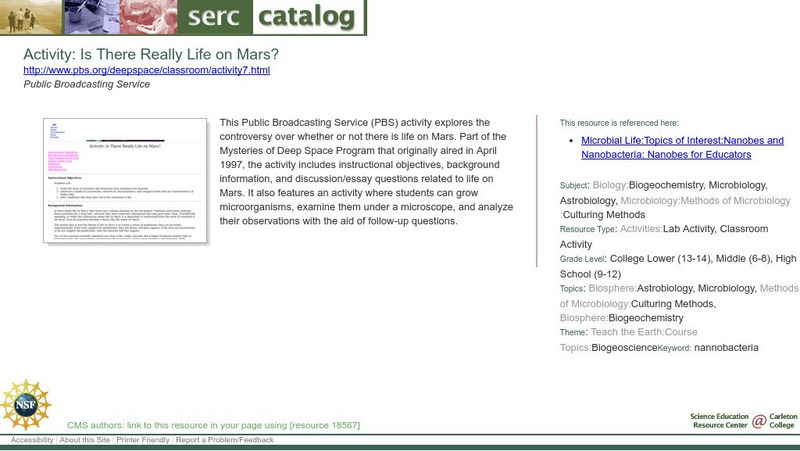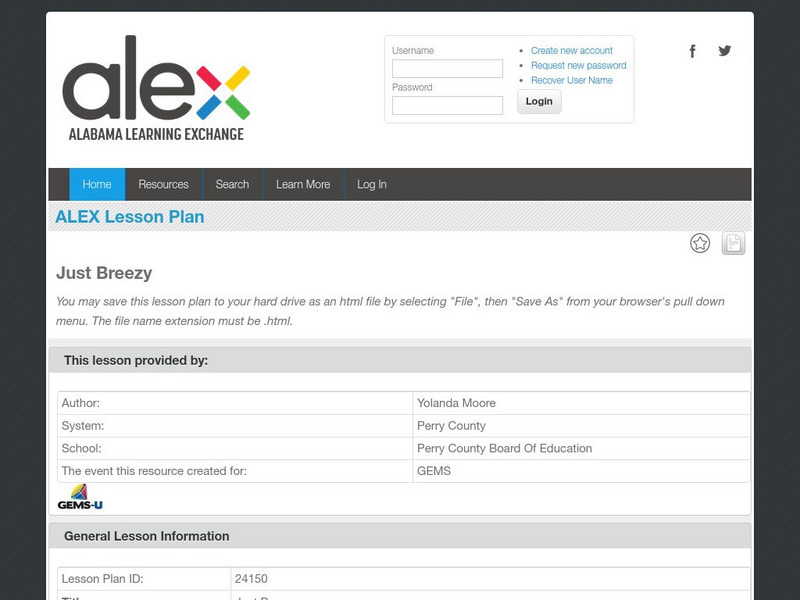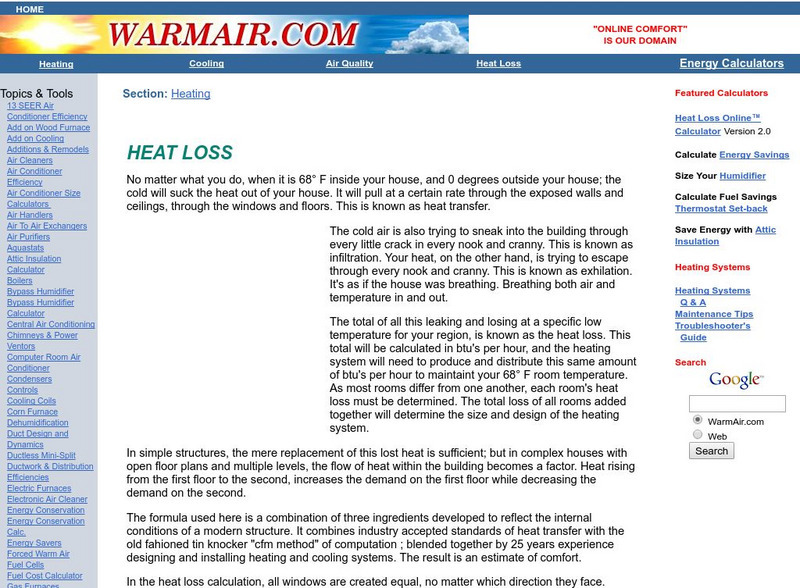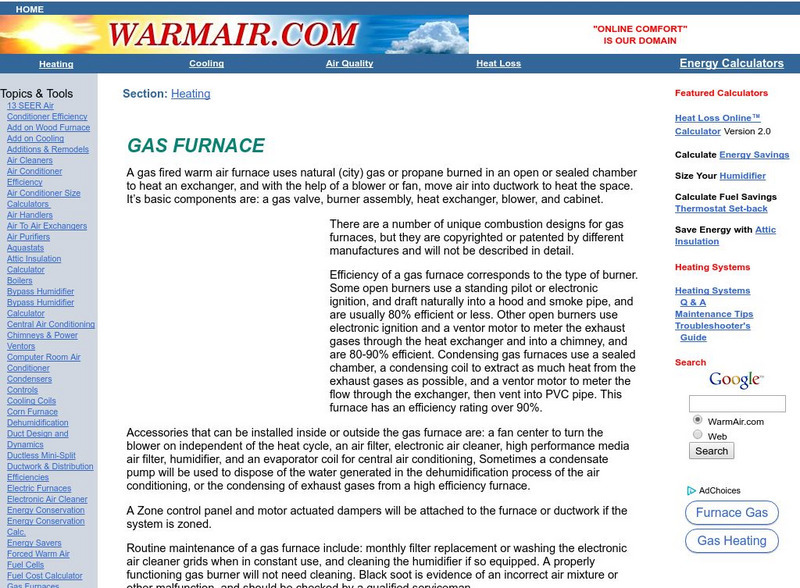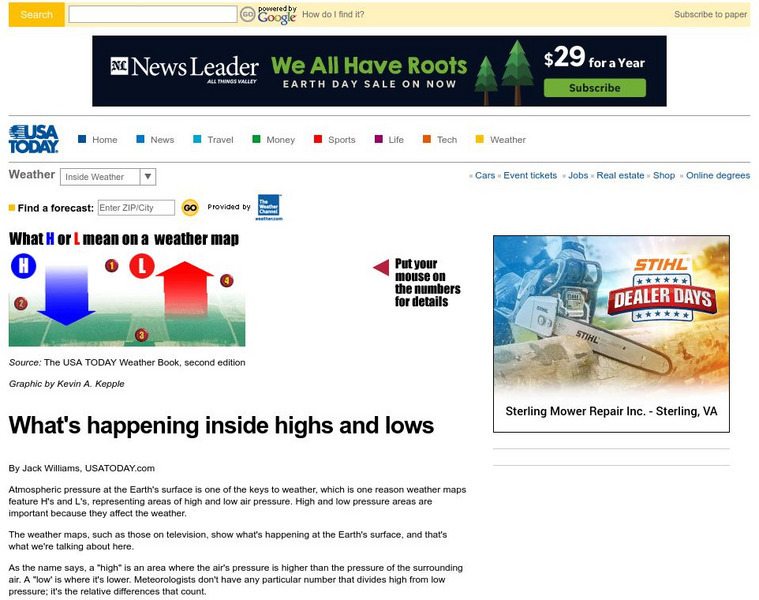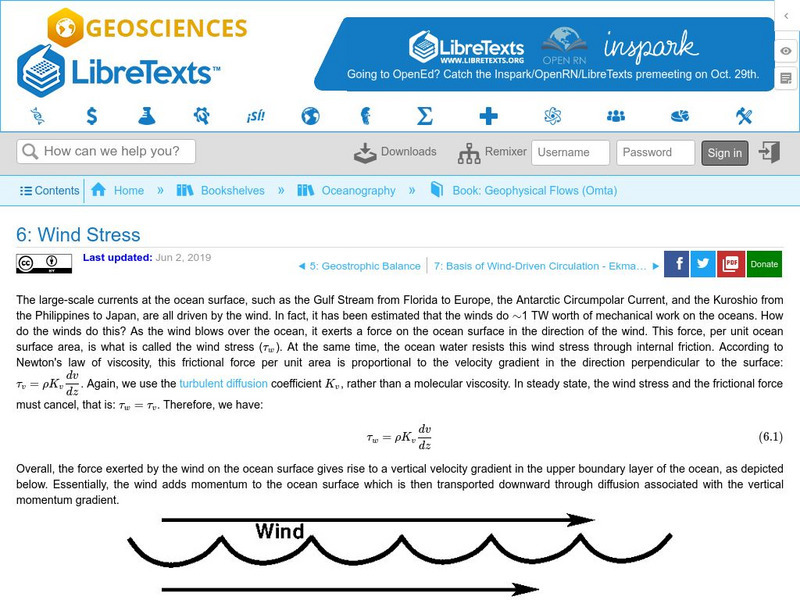Hi, what do you want to do?
Other
American Meteorological Society: Data Streme Atmosphere
This site provides an extensive amount of weather information. Includes current information, forecasting, and historic weather related events. Weather map symbols and terminology explained.
Better Lesson
Better Lesson: Where'd the Wind Come From?
Kids learn the science behind wind by watching a video, hearing a book and using a flow chart. This lesson includes pictures of students' completed work, extension ideas, and a printable flow chart worksheet.
American Geosciences Institute
American Geosciences Institute: Climate and Weather
Eight hands-on lessons module in which students explore climate and weather. Inquiry-based investigations include observing weather, weather reporting, weather maps, weather satellites, causes of weather, and climate change.
American Geosciences Institute
American Geosciences Institute: Wind Classroom Activities
When air is warmed, it expands and becomes less dense. As the air becomes less dense, its air pressure decreases. This occurs because molecules in warm air have greater kinetic energy (energy of motion) than in cold air. As the molecules...
Massachusetts Institute of Technology
Mit: Inventor of the Week: George Westinghouse
This brief article on the life and contributions of George Westinghouse (1846-1914) includes a picture. Read about his air brake as well as his development of the alternating current system.
PBS
Who Made America?: Innovators: George Westinghouse, Jr.
One-page profile of influential innovator, George Westinghouse, Jr., whose vision and ideas helped to increase the safety of the railroad system in America. His experimentation with electricity also had a huge impact on the power...
NOAA
Noaa: Southern Region Weather: Global Circulations
"Global Circulations explain how air and storm systems travel over the Earth's surface. The global circulation would be simple (and the weather boring) if the Earth did not rotate, the rotation was not tilted relative to the sun, and had...
National Weather Service
National Weather Service: Jetsream: Synoptic Meteorology
The National Weather Service presents this site on synoptic meteorology, large-scale weather systems. Learn about the structure and behavior of the atmosphere, including clouds, precipitation, winds and more. Also includes learning...
TeachEngineering
Teach Engineering: An Arm and a Leg
Students will design and build a prototype of an artificial limb using a simple syringe system as an introduction to bioengineering. Students will determine which substance water (liquid) or air (gas) will make the appendage more efficient.
Science Education Resource Center at Carleton College
Serc: Activity: Is There Really Life on Mars?
This Public Broadcasting Service (PBS) activity explores the controversy over whether or not there is life on Mars. Part of the Mysteries of Deep Space Program that originally aired in April 1997, the activity includes instructional...
Other
Warmair.com: Programmable Thermostats
The virtues of programmable thermostats are discussed. Includes a section titled "Thermostat Set-back Calculation;" the visitor can enter the normal and an adjusted thermostat setting and an outdoor temperature and view the percent...
Alabama Learning Exchange
Alex: Just Breezy
In this lesson, students will learn about sea breezes and land breezes. They will complete demonstrations and work in groups as they investigate how air is affected by the surfaces below it. This lesson plan was created as a result of...
Utah Education Network
Uen: Design Your Own Bedroom
Many students dream of designing their ideal bedroom. In this exercise, students will be required to limit their designs by size (as a specific volume) and price (a specific amount). They must design the floor plan, including furniture...
Science Struck
Science Struck: Facts About Prevailing Westerlies
Explains what prevailing westerlies are and the impact they have on weather systems around the world.
Other
Warm Air: Heat Loss
An excellent page describing the variables which effect the heat loss through homes. The causes and sources of such heat loss are identified and explained. Lays the groundwork for understanding the importance of and need for home heating...
Other
Warm Air: Gas Furnace
Gas furnaces are described. The major parts of such a furnace and their respective role is discussed. Maintenance and troubleshooting tips are provided.
USA Today
Usa Today: What's Happening Inside Highs and Lows
Interactive media is used to explain the differences between high pressure and low pressure weather systems.
NASA
Nasa: Global Wind Patterns
This site from NASA lists and defines global wind patterns. It features a graphic of these patterns and a self-test with answers.
Enchanted Learning
Enchanted Learning: Label the Lungs
Do you know the parts of the lung? Check out this lung diagram that can be printed out for students to label the various parts.
Information Technology Associates
Cia World Factbook: Slovakia Geography 2008
General geographic information on Slovakia, including natural resources and environmental issues.
US National Library of Medicine
Medline Plus: Gas Exchange
From MedlinePlus, a video tutorial featuring information on the gas-exchange process with accompanying text.
American Geosciences Institute
American Geosciences Institute: Cold Front and Warm Front
Read and understand the differences between a cold and a warm front.
Libre Text
Libre Text: Wind Stress
The force exerted by the wind on the ocean surface gives rise to a vertical velocity gradient in the upper boundary layer of the ocean. Essentially, the wind adds momentum to the ocean surface which is then transported downward through...
US Geological Survey
Usgs: Effects of Human Activities
This site reviews the effects of agricultural development, urban and industrial development, drainage of the land surface, modifications to river valleys, and modifications to the atmosphere have on ground water and surface water.





